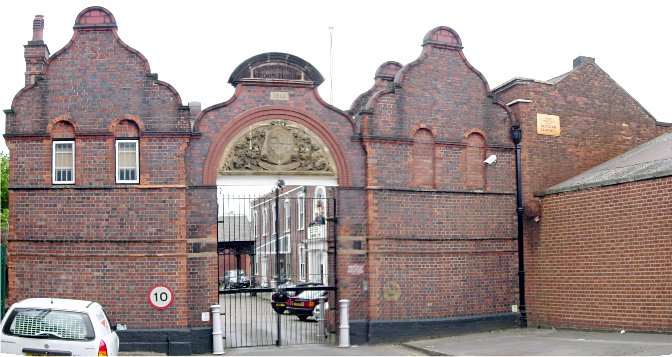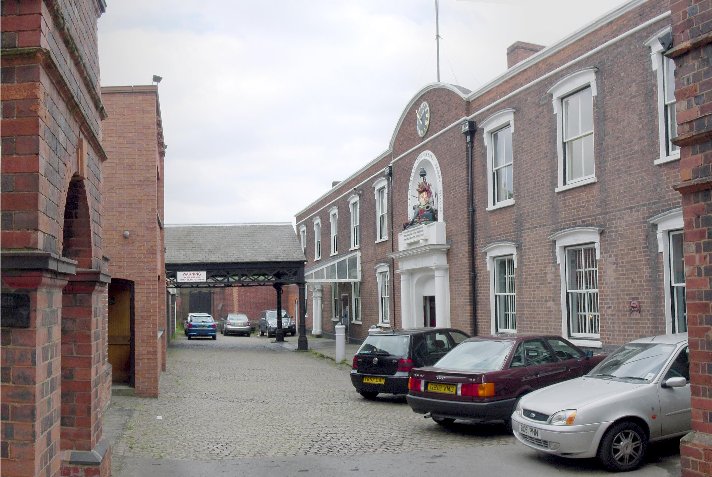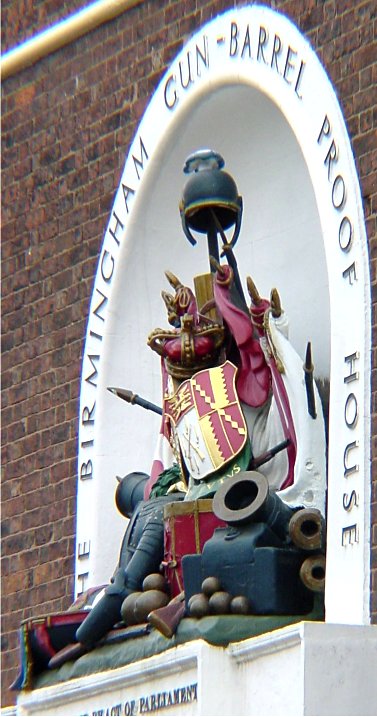
Birmingham Gun Barrel Proof House
Musket barrels were made like most tubes, by rolling metal then joining the two edges at a seam, which inevitably became the weak point in the product. Since many gun barrels would fail, it was sensible to proof them before assembling everything into a functioning weapon. Many manufacturers already proofed their products - by firing them with a much higher than normal powder charge. But to increase the overall reputation of gun barrels from Birmingham, Parliament authorized an independent Gun Barrel Proof House in 1813 - built and run by the gun trade. The Proof House still functions today.
In the 18th century, small arms parts were made by small manufacturers in places like Birmingham, but parts for government muskets were assembled and proofed in the Tower of London. This system reduced the incentive to mass produce as the benefits to a small parts makers were considerably less. Only Revolutionary France tried to mass produce small arms throughout the whole process, and they met great resistance from workers. Probably only the Revolutionary French government had the power to attempt this. America, with little previous experience with gun making, had more success with small arms mass production in the 1800s, but even they encountered difficulties, at Harpers Ferry, for example.




View from across a canal